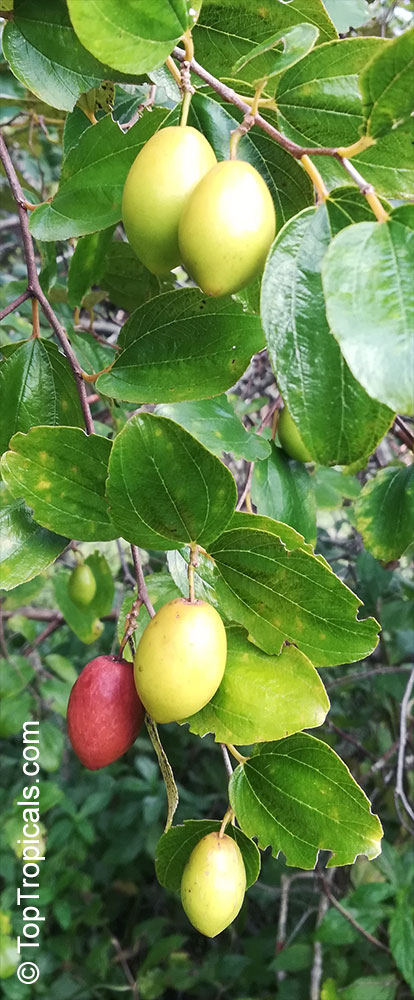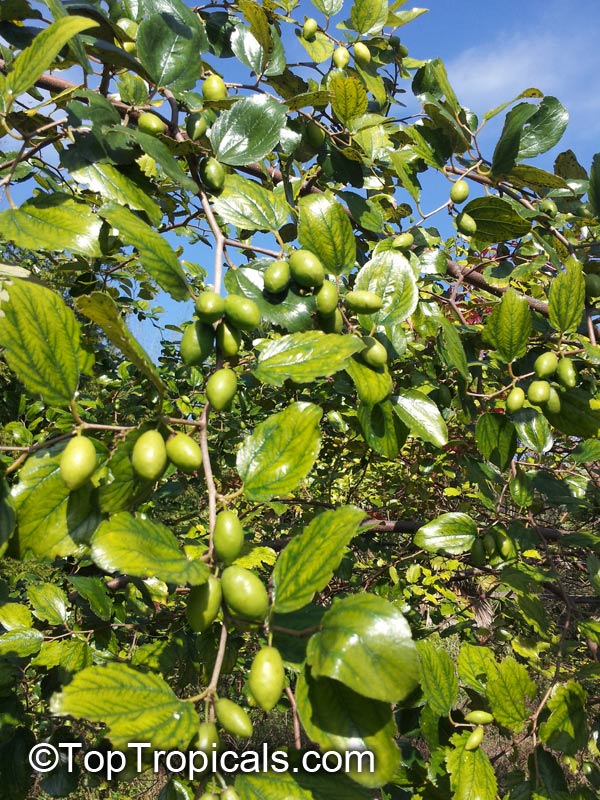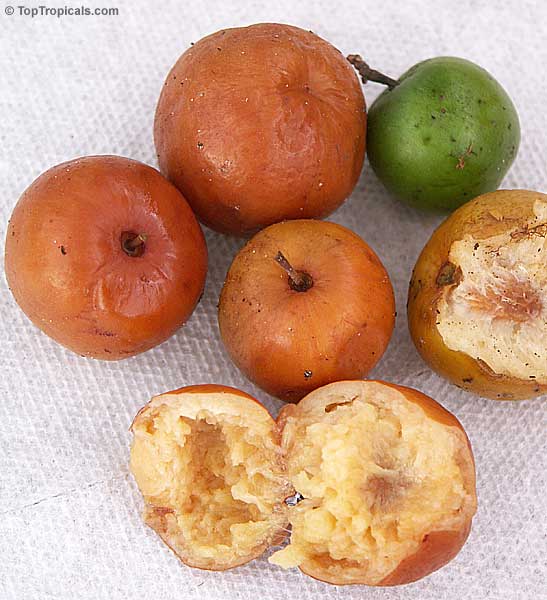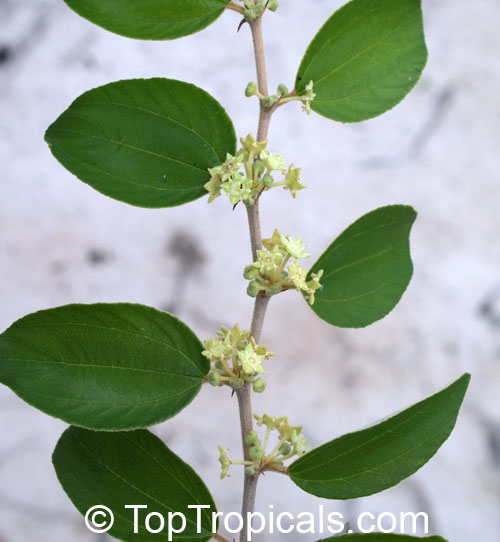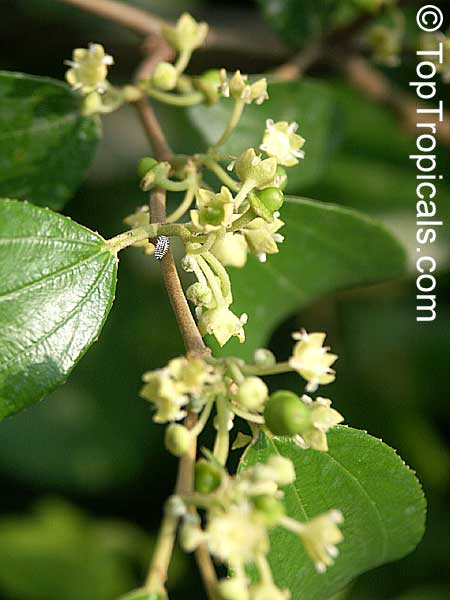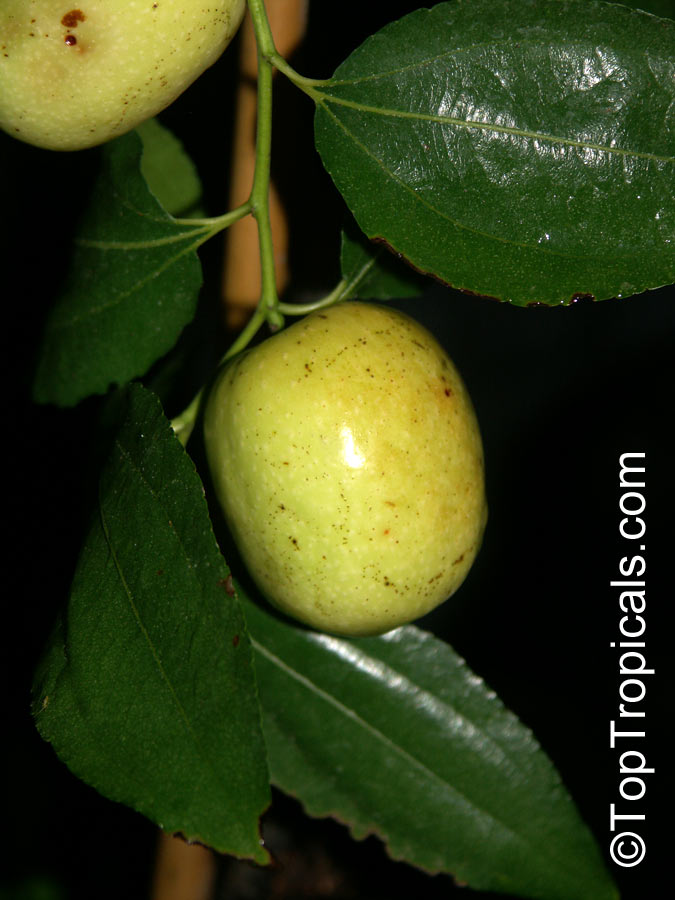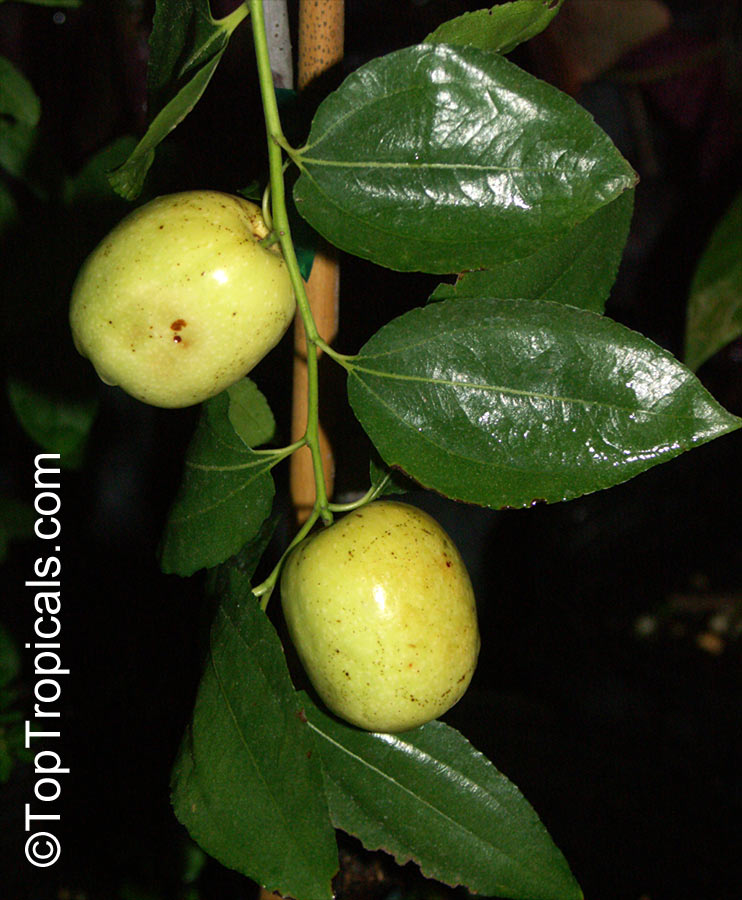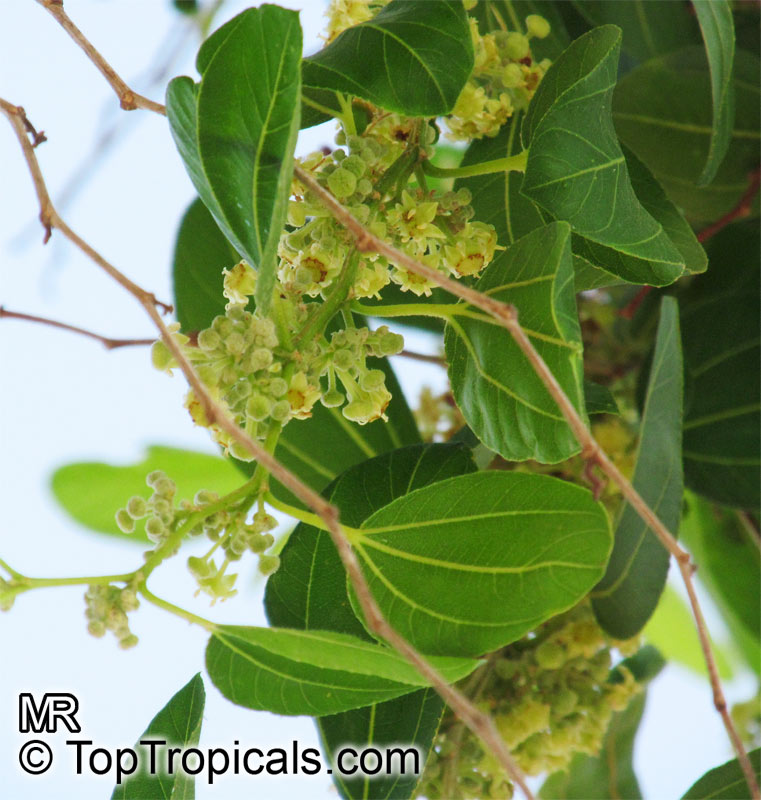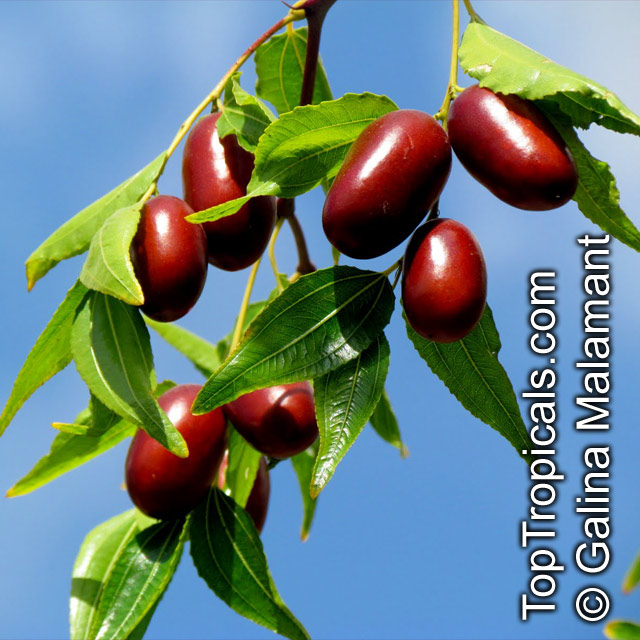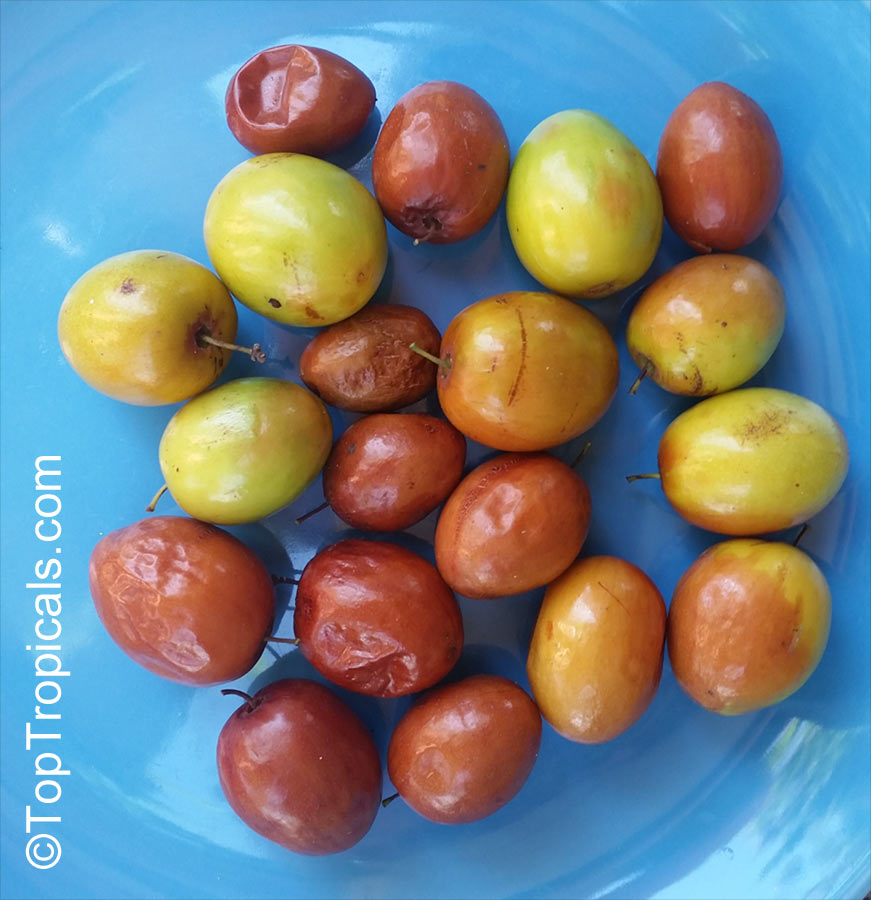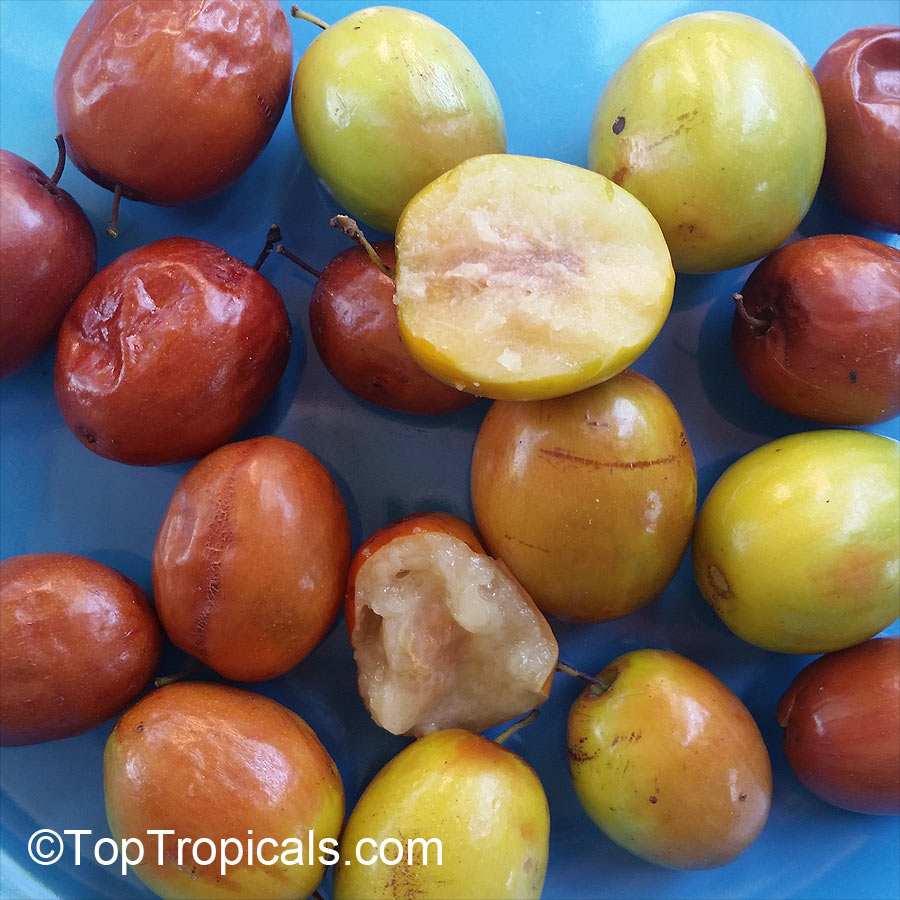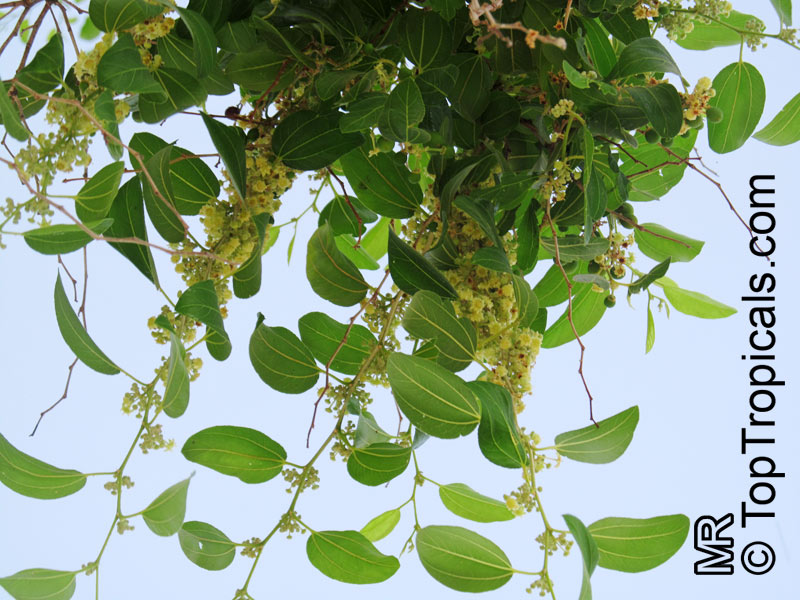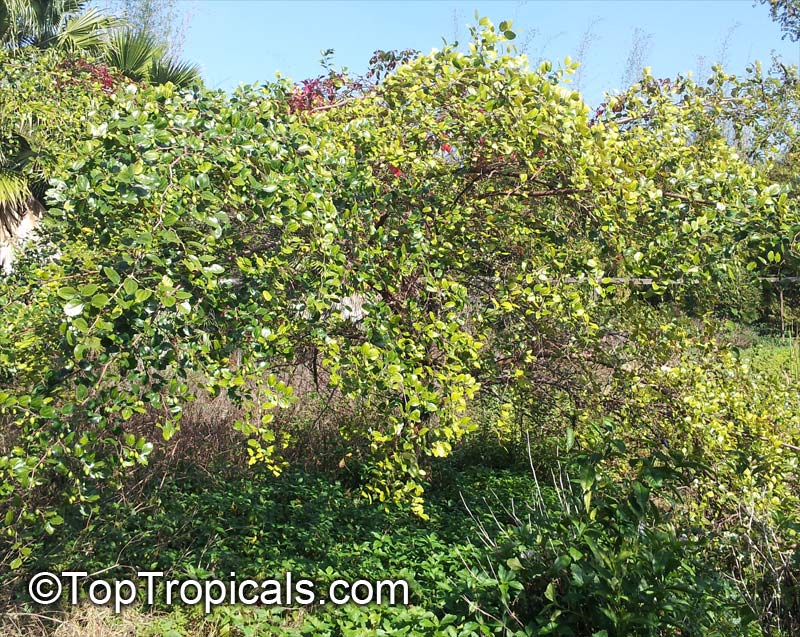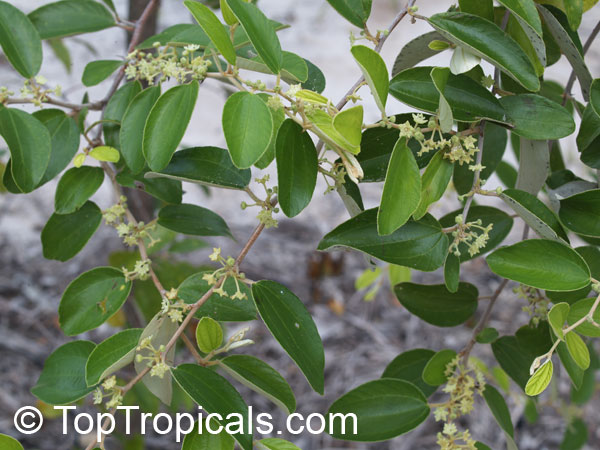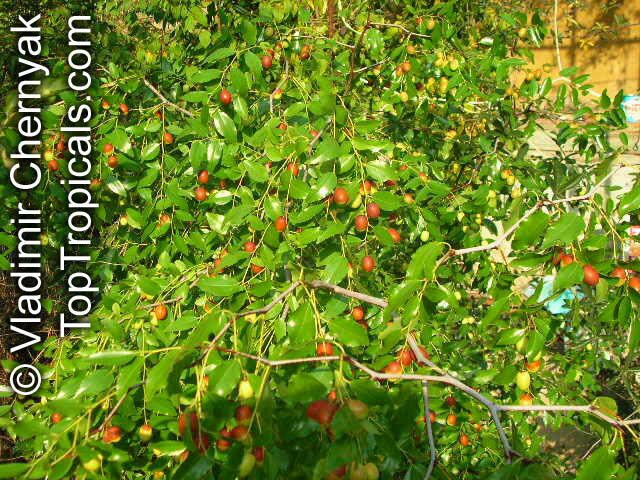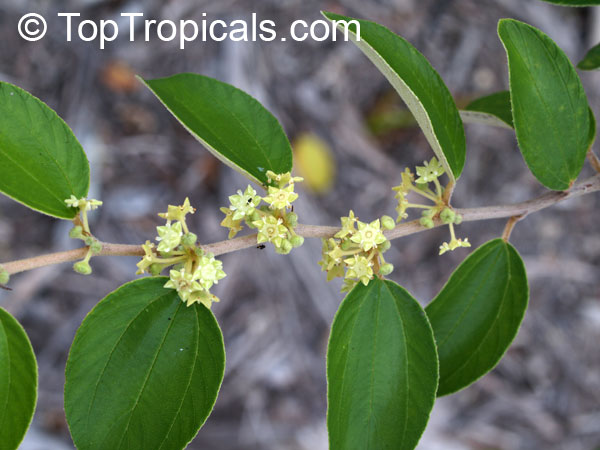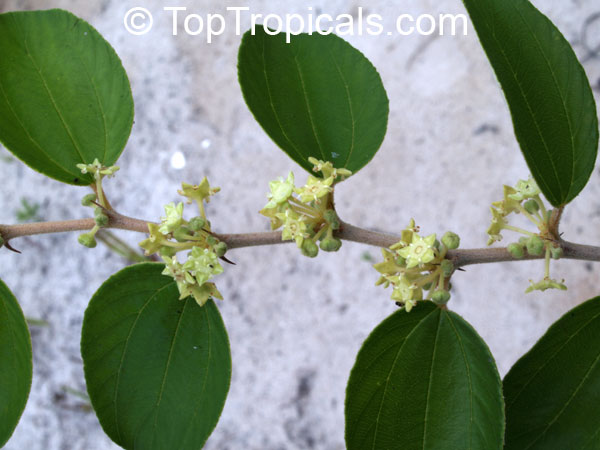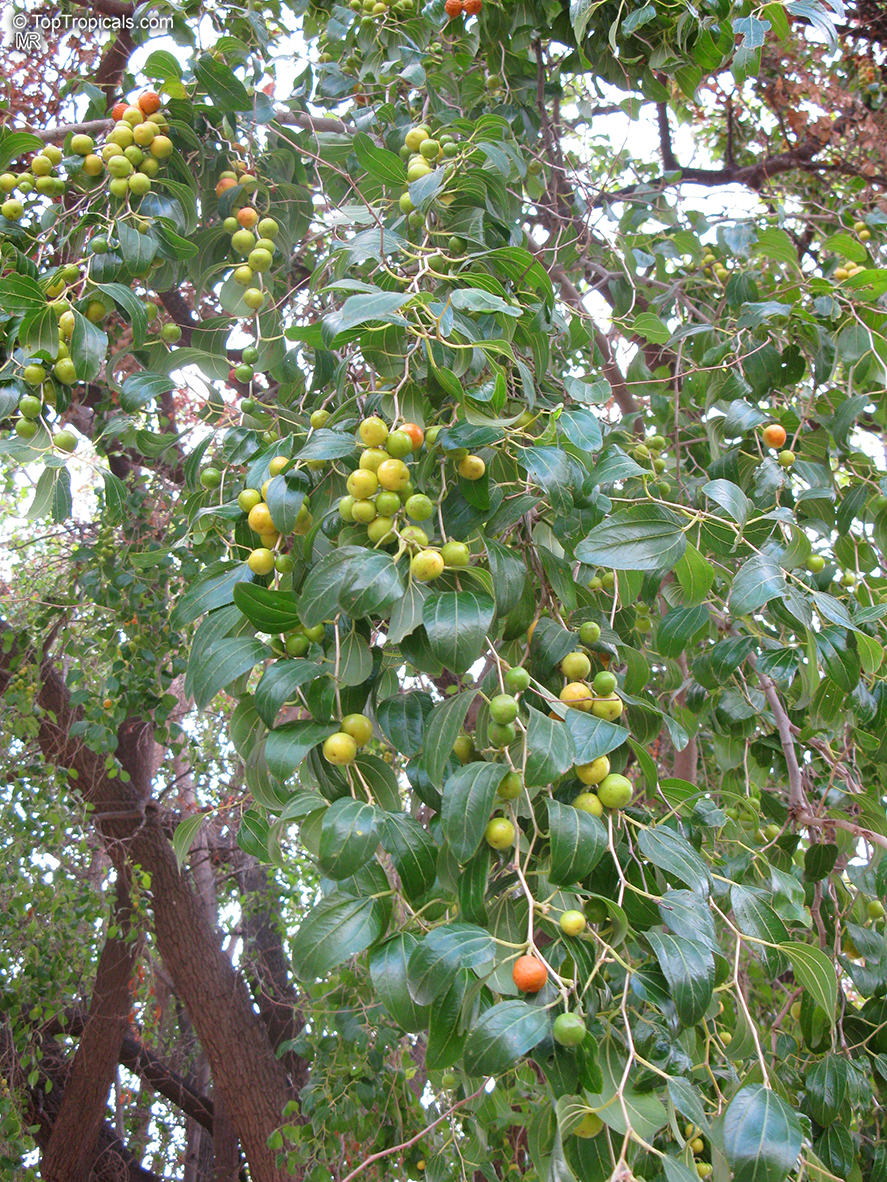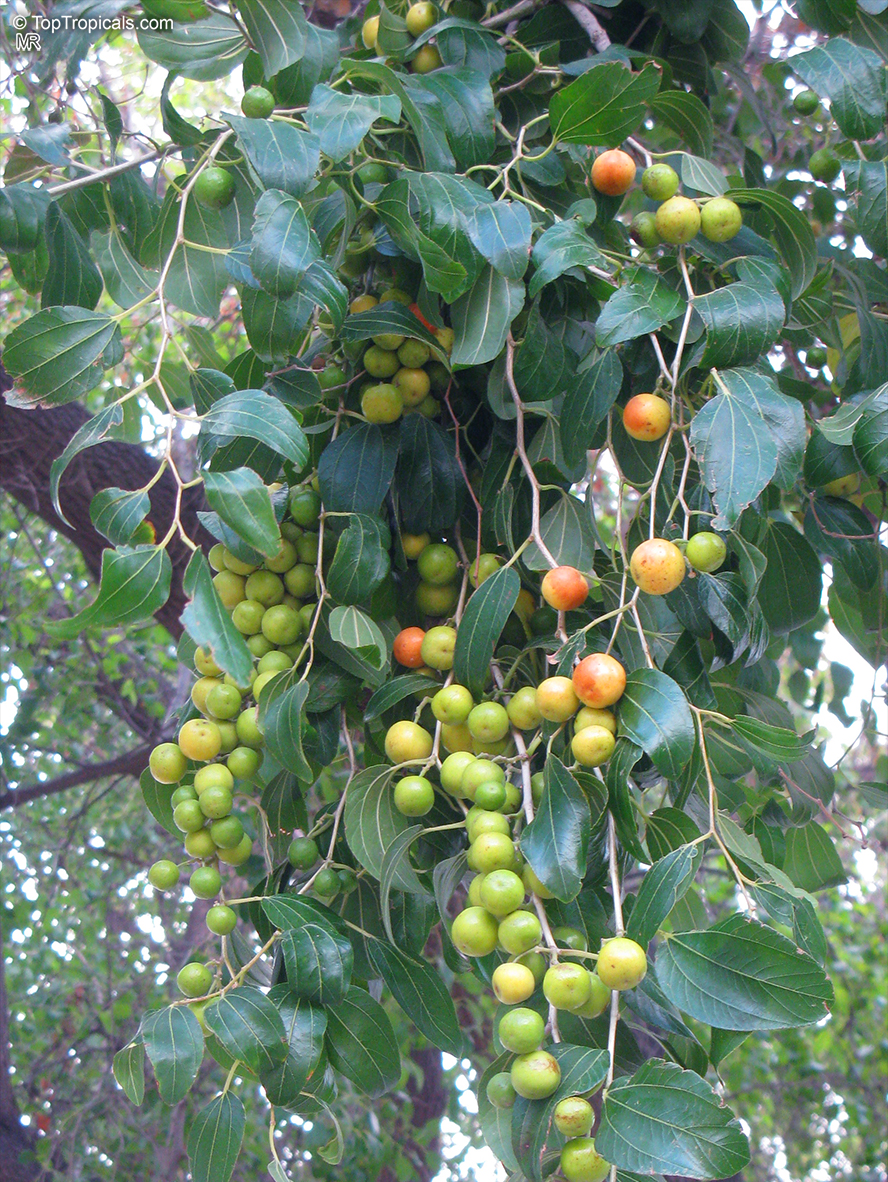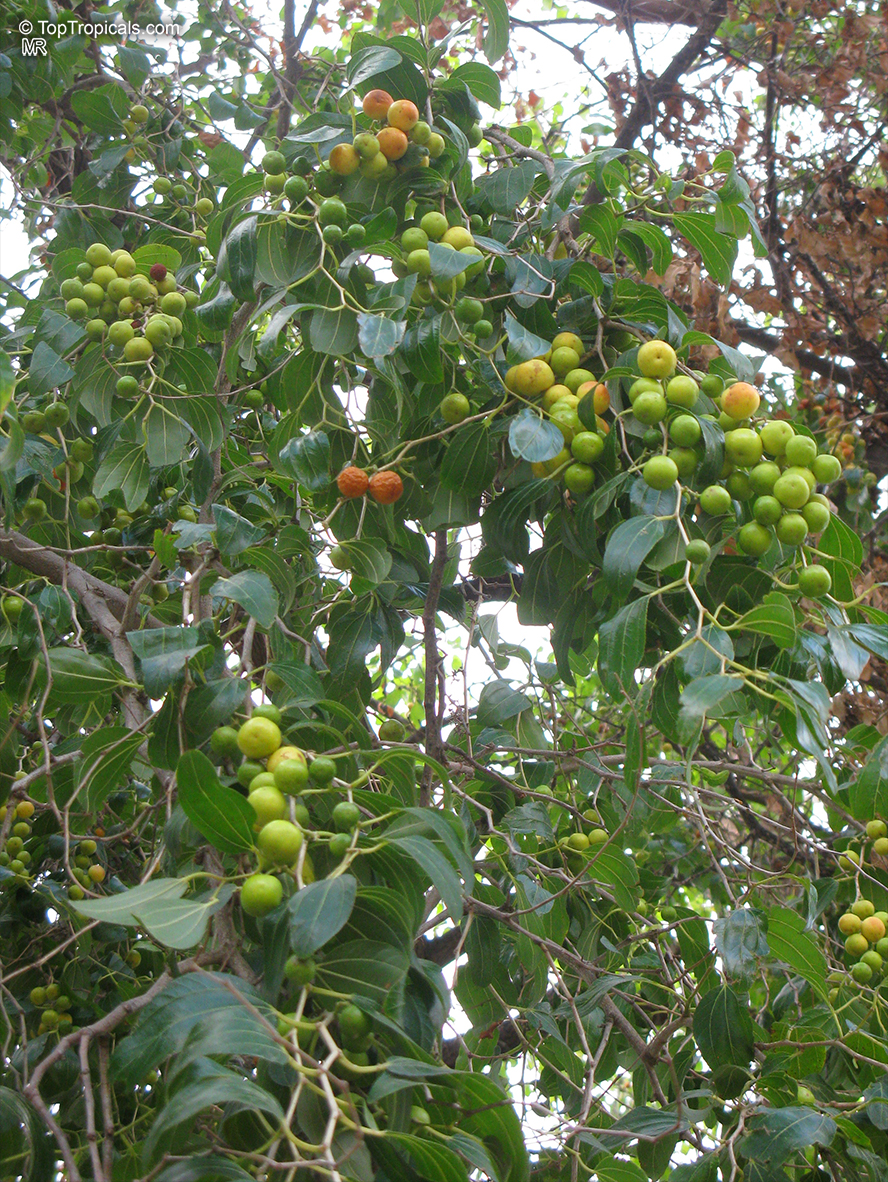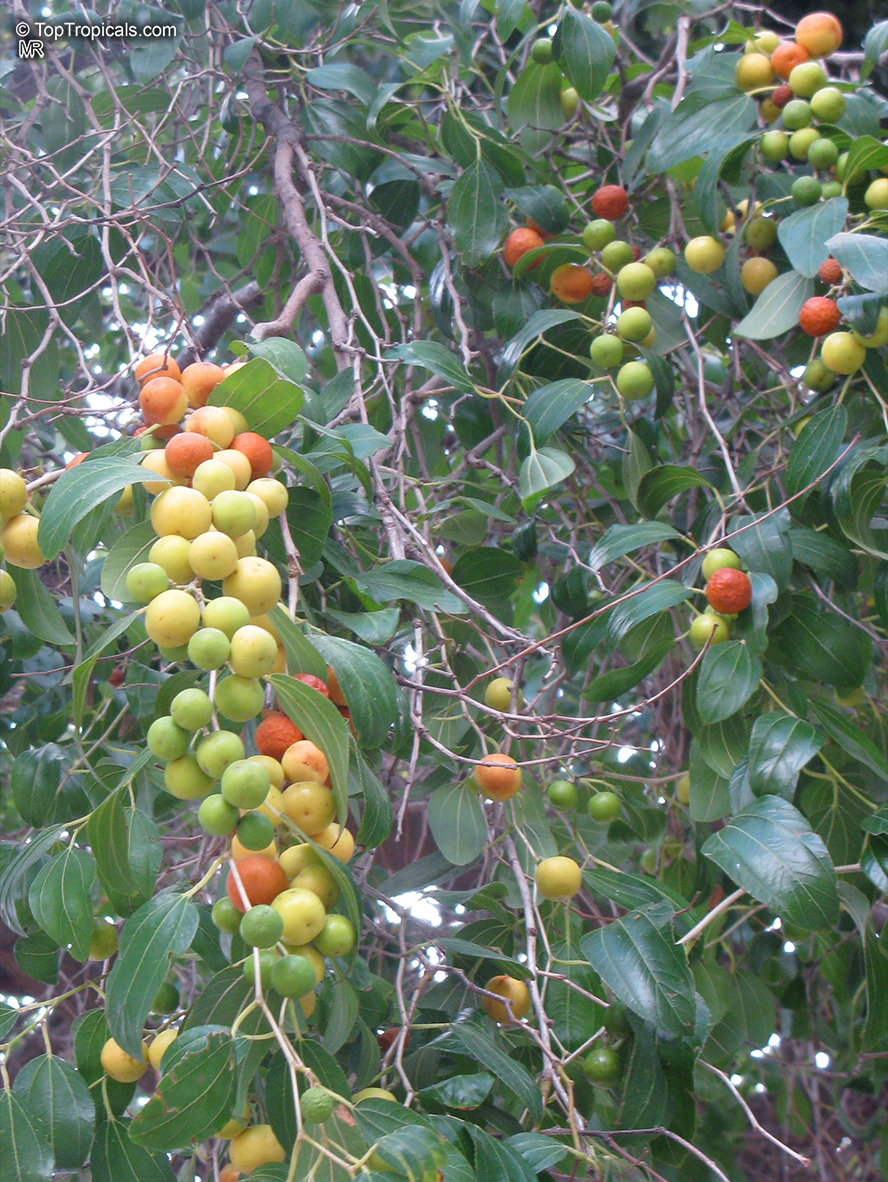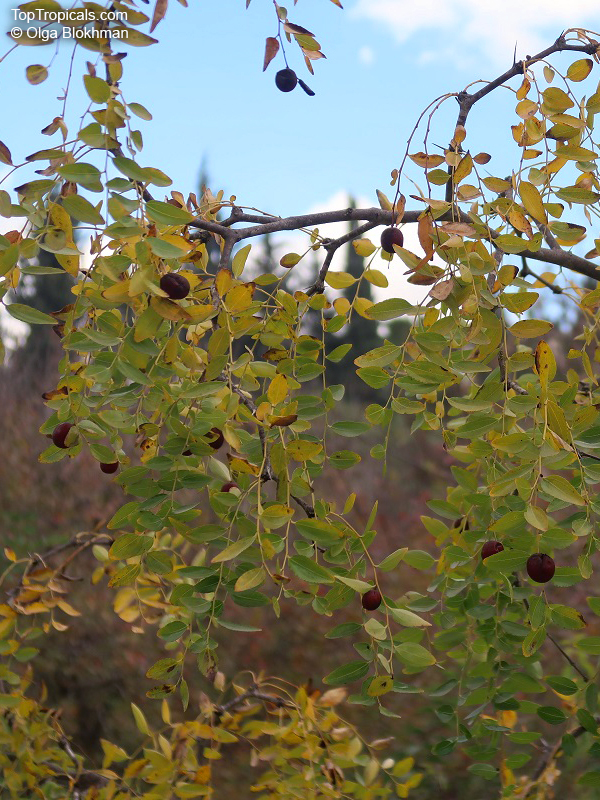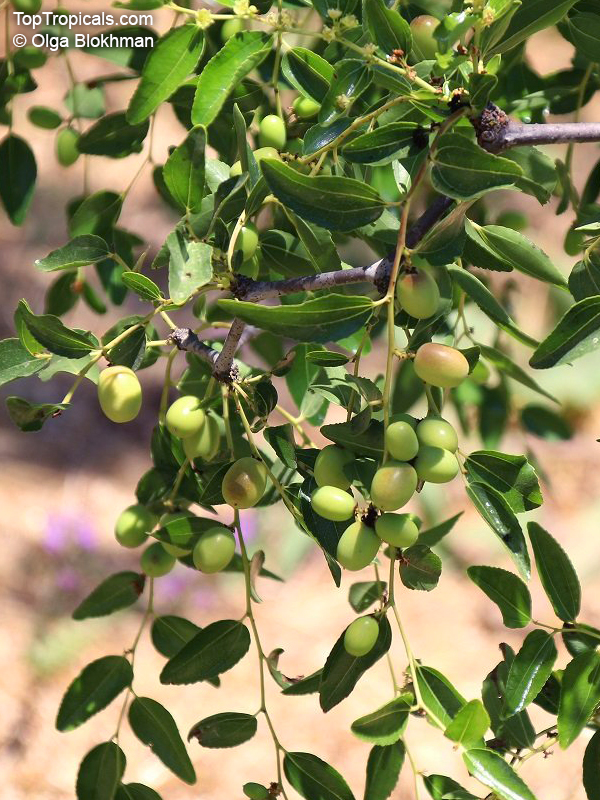Ziziphus jujuba (Chinese Date)
Botanical names: Ziziphus jujuba, Ziziphus sativa
Common names: Chinese Date, Tree of Happiness
Family: Rhamnaceae
Origin: China to Afghanistan, Malaysia, Australia









These small acid fruits are liked by children as well as by adults. A small spreading tree, with drooping branches grows readily and quickly on poor ground. Even moderately saline soils are tolerated. The tree will thrive without any special care. All parts of the plant have medicinal uses. Jujube is widely cultivated China and India. The Chinese have been growing and eating jujubes for more than four thousand years and have more jujube trees than any other type of fruit tree.
The Jujube tree (Ziziphus jujuba), also known as the "Tree of Happiness," is renowned for its remarkable resilience. Its sweet, crisp fruits have been cherished for over 4,000 years, not only as a nutritious treat but also for their medicinal properties, such as stress relief and immunity-boosting benefits. The thornless Taiwan variety is especially beloved for its refreshing, apple-like taste and ease of care.
The name Ziziphus originates from the Persian zizfum or Arabic zizouf, but it is also associated with the Christ's Thorn Jujube (Ziziphus spina-christi), a species believed to have provided the thorns for the biblical crown of thorns. This connection gives the tree profound spiritual and cultural significance across various traditions. In fact, the Jujube tree's symbolism extends to Indian legends, where it is said to be blessed with a boon: no matter how badly it is cut, it will never die, and even a single root will allow it to spring up again. Revered in India, the tree is offered to Siva and is known as the "Tree which removes sorrow," symbolizing endurance and healing.
Some horticulturists also link the name Ziziphus to the Greek myth of Sisyphus, who was condemned to roll a boulder uphill for eternity. Just as the boulder endlessly rolls back down, the Jujube tree continually regrows, no matter how much it is cut or damaged. This metaphorical connection highlights the tree's unyielding spirit and symbolizes perseverance, renewal, and vitality. Thriving in poor, dry soils with minimal care, the Jujube tree truly earns its place as the "Tree of Happiness" in gardens and communities around the world.
Cold hardy, mature plants withstand hard freeze.
Similar plants: Ziziphus jujuba (Chinese Date)
These small acid fruits are liked by children as well as by adults. A small spreading tree, with drooping branches grows readily and quickly on poor ground. Even moderately saline soils are tolerated. The tree will thrive without any special care. All parts of the plant have medicinal uses. Jujube is widely cultivated China and India. The Chinese have been growing and eating jujubes for more than four thousand years and have more jujube trees than any other type of fruit tree.
See Article about Jujube: The tree of Happiness - a tree which removes sorrow.
Recommended Fertilizer: SUNSHINE C-Cibus - Crop Nutrition Booster
SUNSHINE-Honey - sugar booster
